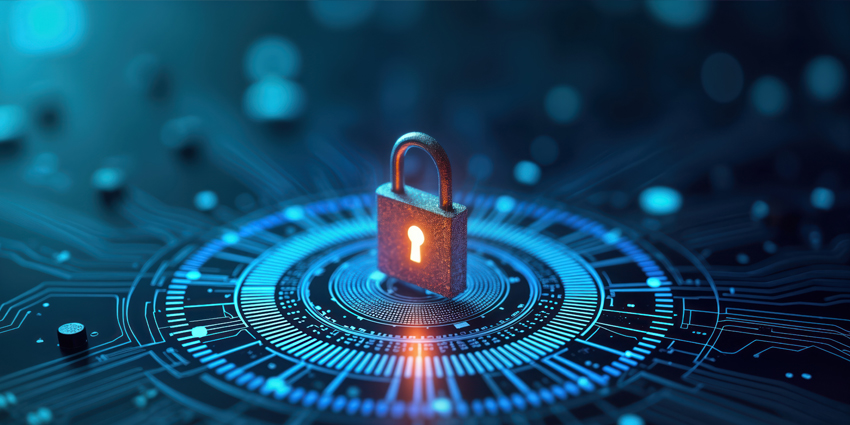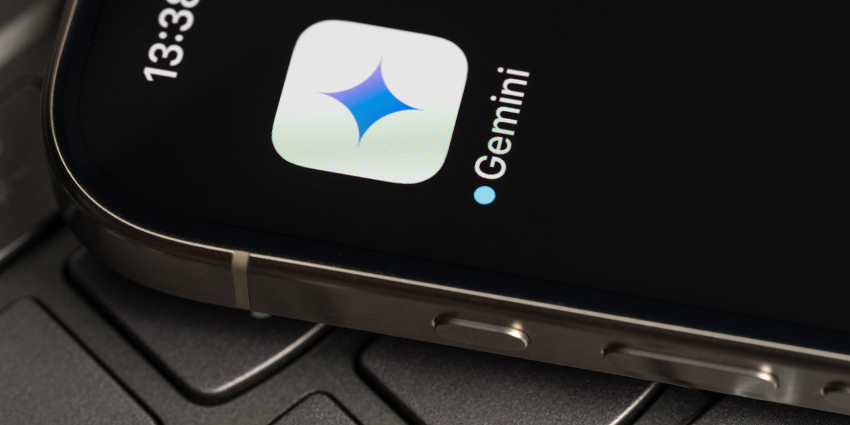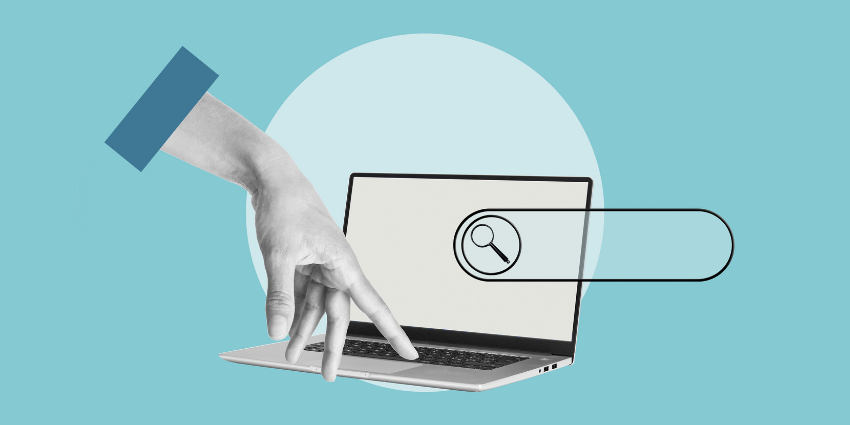Virtually everyone is familiar with OpenAI’s leading generative AI application today. More than 200 million people use this app weekly to boost their creativity, productivity and efficiency. But is ChatGPT safe to use- particularly for businesses with sensitive data to protect?
The creators of ChatGPT (OpenAI), share plenty of information on their website about how they protect consumer and enterprise privacy. But the reality is that all AI systems, including cutting-edge generative AI apps like ChatGPT come with security risks.
Here’s everything you need to know about ChatGPT’s security and whether it’s safe for your organization to use at scale.
Is ChatGPT Safe? The Security Measures of OpenAI
On a broad scale, ChatGPT is usually considered reasonably safe to use- although how safe your data is with the app depends heavily on how you use it. OpenAI does take various steps to keep users secure. First, the company supports consumer compliance with privacy laws like GDPR and CCPA, and offers a data processing addendum for customers.
Plus, OpenAI’s ChatGPT tool, the Enterprise solution, and even the ChatGPT team are regularly evaluated by third-party independent auditors. Beyond this, ChatGPT leverages:
- Encryption: All data transferred between ChatGPT and users is encrypted. That means it’s scrambled into a code that can only be deciphered by the intended recipient. ChatGPT enterprise even supports AES 256 and TLS 1.2 encryption standards.
- Access controls: Only authorized individuals can access ChatGPT’s inner workings and experiment with its codebase, reducing potential risks. Additionally, on the Enterprise plan, admins can control member access and leverage both SSO and domain verification.
- Bug Bounties: ChatGPT consistently searches for potential security issues to fix with its Bug Bounty This encourages tech specialists, ethical hackers, and security researchers to find and report any potential weaknesses in the app.
However, it’s worth noting that the level of security you’ll access with ChatGPT varies depending on your plan. For instance, the Team and Enterprise versions of ChatGPT offer more control over user permissions with an admin console. The Enterprise plan also ensures you access SOC 2 compliant version of ChatGPT, and provides access to in-depth user insights.
Is ChatGPT Safe? Privacy and Data Collection
When it comes to answering the question “Is ChatGPT safe”, you’ll need to consider privacy, alongside security. Understanding how OpenAI apps like ChatGPT use your data can be a little complex. First, we know that OpenAI doesn’t keep your data entirely private as standard – depending on the plan you use.
OpenAI says it shares content with certain “trusted service providers” and third parties to improve its product. However, it doesn’t say what kind of content it shares. However, The company doesn’t sell or trade user data with brokers who might use it for commercial purposes.
Additionally, OpenAI does use data from chats with ChatGPT to improve the natural language processing and content generation capabilities of its bot. The good news is that you can “opt out” of allowing ChatGPT to learn from your data on the ChatGPT Free and Plus plans.
Additionally, temporary chats are never used to train models, and API, ChatGPT Enterprise, and ChatGPT Team data aren’t used for training by default.
When it comes to how data is stored (so ChatGPT can continue previous chats with users), OpenAI says it “de-identifies” data to make it anonymous. It also promises to store that data securely, in compliance with data protection regulations and gives users the option to turn chat histories off.
Is ChatGPT Safe? The Main Risks to Consider
While OpenAI takes a lot of measures to keep ChatGPT safe for users, there are still risks to consider. Like any application, ChatGPT is exposed to numerous security threats, potential compliance issues, and vulnerabilities. Here are the main risks you’ll need to be aware of.
Spam and Phishing
One of the major threats any user will be exposed to when using a digital application these days is phishing. Phishing strategies involve using various tactics to trick people into giving away sensitive information like credit card details or passwords.
In the past, identifying phishing scams used to be a lot easier. They often included a lot of odd words and spelling mistakes. However, tools like ChatGPT give scammers access to tools that can help them create highly convincing phishing messages.
It’s easier for scammers to use AI to help them trick consumers today. The EU agency for law enforcement even released a statement in 2023, warning users about the threat of phishing strategies created with tools like ChatGPT.
Plus, since OpenAI offers users access to APIs, some criminals can even use these to create fake customer service chatbots and assistants, which could make phishing scams even harder to mitigate.
Is Chat GPT Safe from Data Leaks?
Similar to any online resource, tools like ChatGPT can easily suffer from data leaks. Criminals can gain access to internal systems and expose private data on a massive scale. We even saw evidence that ChatGPT is subject to data leaks in 2023, when the app went down for several hours, and ChatGPT users were able to see the history of other users.
Some reports also indicated that ChatGPT-Plus users had their payment-related information exposed. ChatGPT discovered the cause of the problem and addressed it, but this doesn’t mean data breaches will never happen.
This is one reason many companies have prohibited employees from sharing sensitive information with ChatGPT, particularly the consumer-grade versions of the app.
Malicious Code and Malware Development
Generative AI tools like ChatGPT aren’t just great at creating blog post outlines and social media content. They can also be used to write code for malware and hacking purposes. In fact, writing malicious code is much easier with tools like ChatGPT, because scammers don’t need extensive coding knowledge to create a powerful tool.
ChatGPT has guardrails in place to protect against malicious code generation. For instance, asking the app to create a malware app for you will usually cause it to reject your request. However, it’s still possible to manipulate ChatGPT to create dangerous applications. In 2023, a researcher shared that he had found a loophole allowing him to create malware with ChatGPT.
Elsewhere, on hacking forums, criminals have claimed to use the chatbot to create new malware strains. This could mean the use of ChatGPT leads to even more digital security risks.
Is ChatGPT safe from Privacy Concerns?
As we mentioned above, ChatGPT’s approach to data privacy is a bit murky. This leads to the question: “Is ChatGPT safe to use if you’re sharing sensitive and personal data?” OpenAI itself recommends not sharing sensitive information with the bot, even if you opt out of allowing the system to use your data for training.
If you share valuable information, such as data about your business or products or payment information, with ChatGPT, there’s always a risk it could be intercepted. Malicious actors can potentially access the data stored on the platform and use it for fraudulent purposes.
ChatGPT can also help criminals gain access to data they can use for other attacks. For instance, it could disclose what IT system a specific bank uses, giving criminals insights for attack strategies. OpenAI has established strict access controls to minimize privacy risks, but threats still remain.
The Ethical Issues
Answering the question “Is ChatGPT safe” comprehensively means looking beyond the basic security risks the app might be exposed to, and thinking about overall human safety. Like many generative AI tools, ChatGPT raises various ethical concerns.
One common worry is that ChatGPT could help contribute to the spread of fake news and misinformation. It can imitate how humans write to create news reports and documents, but its output won’t always be accurate. In fact, a lawyer once used ChatGPT to prepare a court filing and ended up with a piece that cited six court decisions that never happened.
As the GPTs in ChatGPT become more advanced, and multi-modal, there’s even the potential that they could be used to create highly realistic deepfakes, contributing to the spread of misinformation. Plus, there’s still the issue of bias to consider with models like ChatGPT.
Although this application is trained on high volumes of extensive data to help minimize bias, system biases might occur as a result of certain types of data, or inconsistencies in data. This can lead to the app surfacing discriminatory and even offensive answers to questions.
ChatGPT Scams
Whenever new technologies emerge, new scamming techniques often emerge alongside them. After all, criminals are constantly looking for more effective ways to steal data and money. Since ChatGPT launched, and quickly became one of the fastest-growing apps of all time, countless criminals have attempted to create “fake versions” of the app.
In April 2023, in fact, hundreds of fake ChatGPT clones were reported on the Google Play store. These fake apps can spread malware across computers, enable phishing scams, and more. Some cybercriminals have even used “fleeceware” tactics to try and steal money from users by offering them subscriptions to add-ons and applications that barely function.
Certain criminals have even created scam strategies specifically targeting larger companies, known as “whaling scams”. For example, in July 2023, a ChatGPT clone (WormGPT) was introduced with the intent of launching business email compromise attacks.
Is ChatGPT Safe? Tips for Security
On a broad level, ChatGPT is reasonably safe, but how you use the system and the measures you implement to protect your own data makes a world of difference. Here are our top tips for making ChatGPT safe for use, whether you’re a consumer or business user.
1. Review ChatGPT Security and Privacy Policies
Knowledge is power, particularly when answering the question, “Is ChatGPT safe?” Don’t assume that any generative AI application is safe for your use cases. Make sure you take the team to read up on the company’s privacy and security policies.
ChatGPT shares plenty of information on how it collects and manages data, and offers tips on restricting access to your data if necessary. For instance, you can disable chat history and opt out of model training initiatives if you’re worried about data privacy.
2. Use the Right Version of ChatGPT
There are various versions of ChatGPT available today. The premium versions, designed for business users, offer more security and control, as well as better functionality and faster access to new models like GPT-4o.
Enterprise and Team versions of ChatGPT don’t use the data you share for training as standard and give users access to more access controls and reporting features. If you’re using ChatGPT for business purposes and want to protect your data, upgrading makes sense.
3. Be Cautious about the Data You Share
The less sensitive data you share with a solution like ChatGPT, the safer you’ll be. Even if you’re not storing chat histories on ChatGPT or opted out of training the model with your chats, OpenAI will store your data for a certain amount of time. This means it’s vulnerable to attacks from criminals who may gain access to your account or ChatGPT’s ecosystem.
Keep personal and sensitive data private. Don’t disclose any particularly valuable data to ChatGPT where possible. For an additional privacy barrier, you could even consider using an anonymous account and VPN to interact with ChatGPT.
4. Follow Cybersecurity Best Practices
ChatGPT is exposed to the same threats as any other online application or digital tool. That means following standard cybersecurity best practices is always a good call. Make sure you create strong and unique passwords for your ChatGPT accounts (and change them periodically). Use antivirus software and similar tools to protect against potential online threats.
Ensure that you’re using ChatGPT’s official applications, too. Check the URL or application you’re using comes directly from OpenAI. It’s also a good idea to avoid installing browser extensions and apps that promise to enhance ChatGPT functionality. Some apps could be tools used by criminals to collect your data.
5. Remember ChatGPT’s Limitations
No generative AI app is perfect. Even the latest algorithms powering cutting-edge tools like ChatGPT make mistakes. Double-check the facts to ensure you’re reducing your exposure to misinformation and not inadvertently sharing incorrect information with others.
Be aware that ChatGPT can suffer from AI hallucinations and confidently present incorrect information in response to questions. Do your research, and don’t believe everything your AI tool tells you automatically.
6. Stay Educated
As generative AI tools like ChatGPT continue to evolve and become more sophisticated, security issues are evolving, too. Already, the threat of “deep fakes” created by multimodal AI tools is becoming a more significant concern, leading to more advanced instances of fraud.
Staying informed about the latest threats affecting the AI landscape, as well as new scams and phishing attempts appearing worldwide, will help you recognize potential risks.
Is ChatGPT Safe? Finishing Thoughts
ChatGPT is an incredible tool for consumers and business users alike. It streamlines and optimizes countless tasks, boosts creativity, and enhances productivity. However, like any AI tool, it has its risks.
ChatGPT still suffers from massive issues related to security, privacy, and compliance. Understanding the threats you’ll face when using ChatGPT will help you protect yourself from a range of emerging threats.
Remember, online safety is a shared responsibility. OpenAI can only do so much to keep you secure and protected. You’ll have to do your part to reduce your exposure to risks too.








